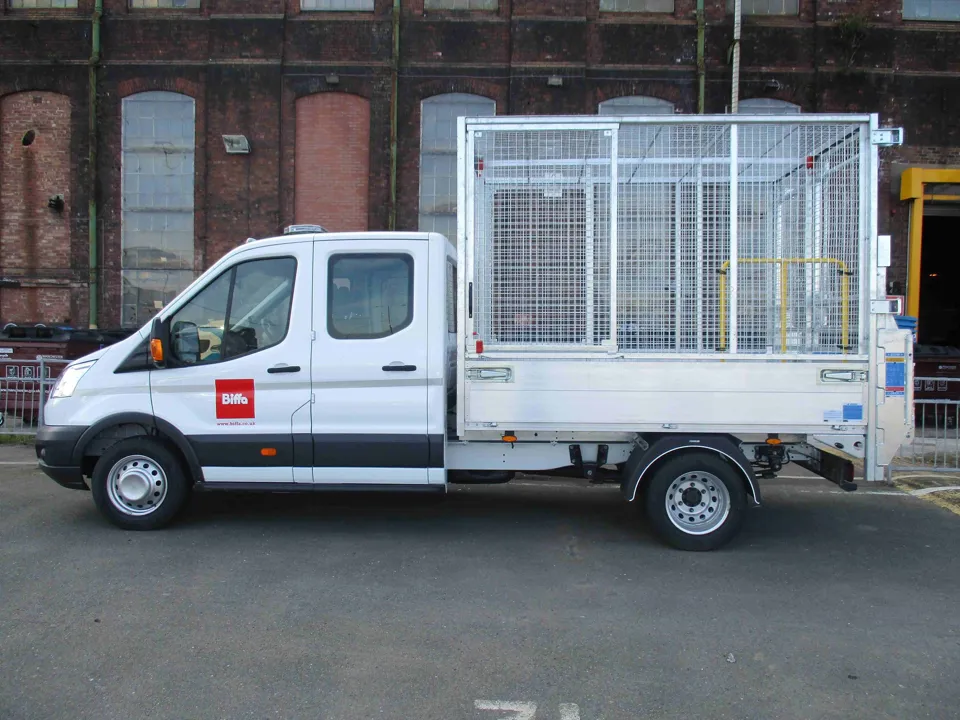Biffa Municipal, which last year began an eight year deal to provide household collections and street cleansing services for Manchester City Council, is investing £11 million in new vehicles to serve the contract.
Biffa has already taken delivery of two Mercedes Econic 1830 18 tonne refuse/recycling collection vehicles (RCVs); nine Mercedes Econic 2630 26 tonne rear steer RCVs; three DAF LF 16 tonne RCVs; 20 Ford Connect L1 vans; and 30 Ford Transit cage tippers (21 single cab, four single cab with tail lift, and five crew cab with tail lift).
Nine of the 14 RCVs delivered to date, which are all Euro 6-compliant, are being prepared by Biffa engineers for a six month trial to determine the best configuration that will optimise their performance. The preferred configurations will then be specified for the 30-plus RCVs making up the rest of the order.
Three different RCV bodies, from Dennis Eagle, Faun & Heil Farid, and two bin lift systems (Terberg and Zoeller) will be evaluated to identify operational performance and costs, and supplier-related factors. Wear rates, warranty failures and response times will all be monitored and recorded, along with vehicle uptime and availability.
Engineers will analyse fuel economy, the number of bin lifts made, and vehicle payload for all waste streams, to help decide the optimum configuration of body and bin lift. Each vehicle configuration will work the same round so that the data is measurable, consistent and fair, and collection crews will regularly give feedback.
The 26 tonne RCVs feature a low entry cab, bus doors on the nearside for safe crew exit and entry, and safety curtains at the rear. As well as being fitted with a rear steer option to increase manoeuvrability and reduce tyre wear, they have also been adapted to accept a nearside-mounted slave carrier for a 140 litre container. Food waste will be decanted into this container during the round, and then tipped safely into the vehicle when required.
A further trial involves a RCV fitted with a 360 degree video camera (commonly used on many Biffa fleets elsewhere in the country) and the Cy-clear safe cyclist system. The trial will assess how effectively technology can help improve safety around the vehicle for both crew and other road users.
Mark Hodkinson, Biffa’s general manager for its Manchester contract, said: “We’re all working hard to get the fleet prepared for deployment on Manchester’s streets. While performing their normal duties, the larger RCVs will be providing valuable information about how they can best be used to deliver efficient and economical collection services.
“We’re also keen to get feedback on the safe cyclist system which we hope will be an important aid that gives our drivers greater visibility of all road users, particularly cyclists, at all times.”
As part of the fleet investment, Biffa’s Manchester workshops will be accredited to carry out self-warranty work on behalf of equipment suppliers.
Each RCV is expected to have a working life of around 10 years, during which time it will cover mileage equivalent to more than three times round the world (75,000+ miles). Depending on their schedule, they will collect around 120 tonnes of residual waste, 60 to 70 tonnes of recyclables or 100 plus tonnes of green waste each week from over half a million Manchester residents.

















Login to comment
Comments
No comments have been made yet.